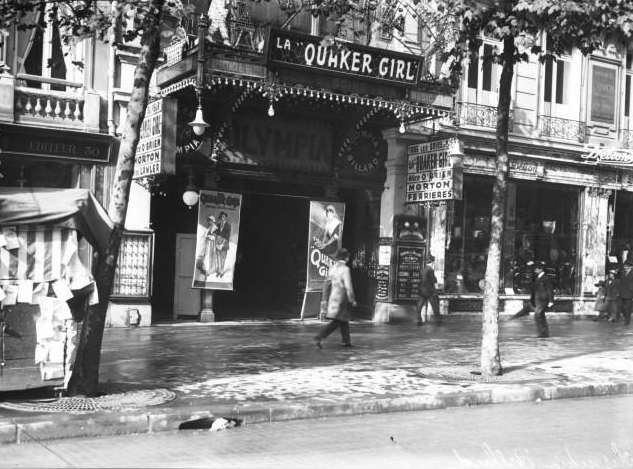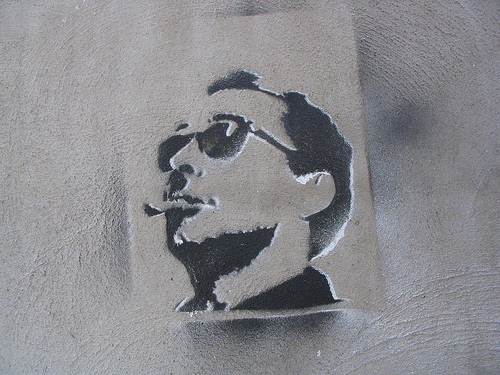|
Raymond Devos
Raymond Devos (; 9 November 1922 – 15 June 2006) was a French humorist, stand-up comedian and clown. He is best known for his sophisticated puns and surreal humour. Early life Devos was born in Mouscron, Belgium, close to the French border. Both his parents were French and he moved to Tourcoing, France, at the age of two. Seven years later, his family moved to Paris. During the Second World War he was sent, like many young men of his generation, to Germany to work. On his return to France, he took acting and mime lessons at the Étienne Ducroux school, where he met Marcel Marceau. In 1948, he was part of a burlesque trio (in the older sense of the word ''burlesque''). Career Devos's career took off in the 1950s when he began writing his own one man shows and was the opening act for Maurice Chevalier. Although his act still involved elements of his early years as a clown (such as juggling) he was mostly recognized because of his mastery of the French language. His unique ... [...More Info...] [...Related Items...] OR: [Wikipedia] [Google] [Baidu] |
Mouscron
Mouscron (; Dutch language, Dutch and , ; Picard language, Picard and Walloon language, Walloon: ''Moucron'') is a Municipalities of Belgium, municipality and City status in Belgium, city of Wallonia located in the Belgium, Belgian Hainaut Province, province of Hainaut, along the border with the French city of Tourcoing, which is part of the Lille metropolitan area. The Municipalities of Belgium, municipality consists of the following districts: Dottignies, Herseaux, Luingne, and Mouscron. In accordance with the national law, the municipality offers Municipalities with language facilities, facilities for the Dutch language, Dutch speaking minority. Kortrijk, in Flanders, is located just to the north of Mouscron. The city substantially grew during the 19th and early 20th century with the development of the textile industry in the north of France. The symbol of the city is the Hurlu: a character representing Geuzen, Protestant activists, who plundered the countryside during the Fren ... [...More Info...] [...Related Items...] OR: [Wikipedia] [Google] [Baidu] |
Maurice Chevalier
Maurice Auguste Chevalier (; 12 September 1888 – 1 January 1972) was a French singer, actor, and entertainer. He is best known for his signature songs, including " Livin' In The Sunlight", " Valentine", " Louise", " Mimi", and " Thank Heaven for Little Girls", and for his films, including '' The Love Parade'', '' The Big Pond'', '' The Smiling Lieutenant'', '' One Hour with You'', and '' Love Me Tonight''. His trademark attire was a boater hat and tuxedo. Chevalier was born in Paris. He made his name as a star of musical comedy, appearing in public as a singer and dancer at an early age before working in menial jobs as a teenager. In 1909, he became the partner of the biggest female star in France at the time, Fréhel. Although their relationship was brief, she secured him his first major engagement, as a mimic and a singer in ''l'Alcazar'' in Marseille, for which he received critical acclaim by French theatre critics. In 1917, he discovered jazz and ragtime and went to Londo ... [...More Info...] [...Related Items...] OR: [Wikipedia] [Google] [Baidu] |
Yvelines
Yvelines () is a department in the western part of the Île-de-France region in Northern France. In 2019, it had a population of 1,448,207.Populations légales 2019: 78 Yvelines INSEE Its prefecture is Versailles, home to the , the principal residence of the King of France from 1682 until 1789, a [...More Info...] [...Related Items...] OR: [Wikipedia] [Google] [Baidu] |
Paris Olympia
The Olympia (; commonly known as L'Olympia or in the English-speaking world as Olympia Hall) is a concert venue in the 9th arrondissement of Paris, France, located at 28 Boulevard des Capucines, equally distancing Madeleine church and Opéra Garnier, north of Vendôme square. Its closest métro/RER stations are , , , and . The hall was opened in 1893 by one of the two co-creators of the Moulin Rouge venue, and saw many opera, ballet, and music hall performances. Theatrical performances declined in the late 1920s and the Olympia was converted into a cinema, before re-opening as a venue in 1954 with Bruno Coquatrix as executive director. Since the 1960s, it has been a popular venue for rock bands. The Olympia was threatened with demolition in the early 1990s, but saved by a preservation order. Inevitably included in a group of buildings that were part of an extensive renovation project, the entire edifice was demolished and rebuilt in 1997. The venue's facade and its interi ... [...More Info...] [...Related Items...] OR: [Wikipedia] [Google] [Baidu] |
1965 In Film
The year 1965 in film involved several significant events, with '' The Sound of Music'' topping the U.S. box office and winning five Academy Awards. Fox Film (now 20th Century-Fox), Universal City, California and Universal Studios Lot celebrated their 50th anniversaries. Top-grossing films (U.S.) The top ten 1965 released films by box office gross in North America are as follows: Events * February 15 – George Stevens' production of '' The Greatest Story Ever Told'', a retelling of the account of Jesus Christ, premieres in New York City, New York. It was such a flop with critics and audiences that its failure discouraged production of religious epics for many years. It is considered notable in the 21st century for its astonishing landscapes, powerful and provocative cinematography, Max von Sydow's debut acting performance in an American film, and the final film performance of Claude Rains. * March 2 – The Rodgers and Hammerstein film adaptation of '' The Sound of M ... [...More Info...] [...Related Items...] OR: [Wikipedia] [Google] [Baidu] |
Jean-Luc Godard
Jean-Luc Godard ( , ; ; 3 December 193013 September 2022) was a French and Swiss film director, screenwriter, and film critic. He rose to prominence as a pioneer of the French New Wave film movement of the 1960s, alongside such filmmakers as François Truffaut, Agnès Varda, Éric Rohmer and Jacques Demy. He was arguably the most influential French filmmaker of the post-war era. According to AllMovie, his work "revolutionized the motion picture form" through its experimentation with narrative, continuity, sound, and camerawork. During his early career as a film critic for '' Cahiers du Cinéma'', Godard criticized mainstream French cinema's "Tradition of Quality" and championed Hollywood directors like Alfred Hitchcock and Howard Hawks. In response, he and like-minded critics began to make their own films, challenging the conventions of traditional Hollywood in addition to French cinema. Godard first received global acclaim for '' Breathless'' (1960), a milestone in t ... [...More Info...] [...Related Items...] OR: [Wikipedia] [Google] [Baidu] |
Thomas Mann
Paul Thomas Mann ( , ; ; 6 June 1875 – 12 August 1955) was a German novelist, short story writer, social critic, philanthropist, essayist, and the 1929 Nobel Prize in Literature laureate. His highly symbolic and ironic epic novels and novellas are noted for their insight into the psychology of the artist and the intellectual. His analysis and critique of the European and German soul used modernized versions of German and Biblical stories, as well as the ideas of Johann Wolfgang von Goethe, Friedrich Nietzsche, and Arthur Schopenhauer. Mann was a member of the Hanseaten (class), hanseatic Mann family and portrayed his family and class in his first novel, ''Buddenbrooks''. His older brother was the radical writer Heinrich Mann and three of Mann's six children – Erika Mann, Klaus Mann and Golo Mann – also became significant German writers. When Adolf Hitler Adolf Hitler's rise to power, came to power in 1933, Mann fled to Switzerland. When World War II broke out in 1939, he ... [...More Info...] [...Related Items...] OR: [Wikipedia] [Google] [Baidu] |
Mime
A mime artist, or simply mime (from Greek language, Greek , , "imitator, actor"), is a person who uses ''mime'' (also called ''pantomime'' outside of Britain), the acting out of a story through body motions without the use of speech, as a theatrical medium or as a performance art. In earlier times, in English, such a performer would typically be referred to as a mummer. Miming is distinguished from silent comedy, in which the artist is a character in a film or skit without sound. Jacques Copeau, strongly influenced by Commedia dell'arte and Japanese Noh theatre, used masks in the training of his actors. His pupil Étienne Decroux was highly influenced by this, started exploring and developing the possibilities of mime, and developed corporeal mime into a highly sculptural form, taking it outside the realms of naturalism. Jacques Lecoq contributed significantly to the development of mime and physical theatre with his training methods. As a result of this, the practice of mime h ... [...More Info...] [...Related Items...] OR: [Wikipedia] [Google] [Baidu] |
Les Têtes Interverties
''Les têtes interverties'', also known as ''La cravate'', ''The Transposed Heads'' and ''The Severed Heads'', is a 1957 French short film written and directed by Alejandro Jodorowsky, Saul Gilbert, and Ruth Michelly. Shot between 1953 and 1957, the film is a mime adaptation of Thomas Mann's 1940 novella '' The Transposed Heads'' (''Die vertauschten Köpfe''). The film stars the surreal humorist Raymond Devos Raymond Devos (; 9 November 1922 – 15 June 2006) was a French humorist, stand-up comedian and clown. He is best known for his sophisticated puns and surreal humour. Early life Devos was born in Mouscron, Belgium, close to the French border. ... as well as Jodorowsky himself. External links * References 1957 films 1950s fantasy films French films based on plays Films based on works by Thomas Mann Films directed by Alejandro Jodorowsky 1950s French-language films French comedy short films 1950s French films 1957 short films {{1950s-France-film-st ... [...More Info...] [...Related Items...] OR: [Wikipedia] [Google] [Baidu] |
Short Film
A short film is a film with a low running time. The Academy of Motion Picture Arts and Sciences (AMPAS) defines a short film as "an original motion picture that has a running time of not more than 40 minutes including all credits". Other film organizations may use different definitions, however; the Academy of Canadian Cinema and Television, for example, currently defines a short film as 45 minutes or less in the case of documentaries, and 59 minutes or less in the case of scripted narrative films (it is not made clear whether this includes closing credits). In the United States, short films were generally termed short subjects from the 1920s into the 1970s when confined to two 35 mm reels or less, and featurettes for a film of three or four reels. "Short" was an abbreviation for either term. The increasingly rare industry term "short subject" carries more of an assumption that the film is shown as part of a presentation along with a feature film. Short films are often s ... [...More Info...] [...Related Items...] OR: [Wikipedia] [Google] [Baidu] |
1957 In Film
The year 1957 in film involved some significant events. ''The Bridge on the River Kwai'' topped the year's box office in North America, France, and Germany, and won seven Academy Awards, including Academy Award for Best Picture, Best Picture. Top-grossing films (U.S.) The top ten 1957 released films by box office gross in North America are as follows: Top-grossing films by country The highest-grossing 1957 films in various countries. Events * January 14 – Legendary actor Humphrey Bogart dies at the age of 57 in Los Angeles from esophageal cancer. Best known for his appearances in classic films such as ''Dead End (1937 film), Dead End'', ''The Maltese Falcon (1941 film), The Maltese Falcon'', ''Casablanca (film), Casablanca'', ''The Treasure of the Sierra Madre (film), The Treasure of the Sierra Madre'' and ''Sabrina (1954 film), Sabrina'', and for ''To Have and Have Not (film), To Have and Have Not'' and ''The Big Sleep (1946 film), The Big Sleep'' co-starring with his ... [...More Info...] [...Related Items...] OR: [Wikipedia] [Google] [Baidu] |





